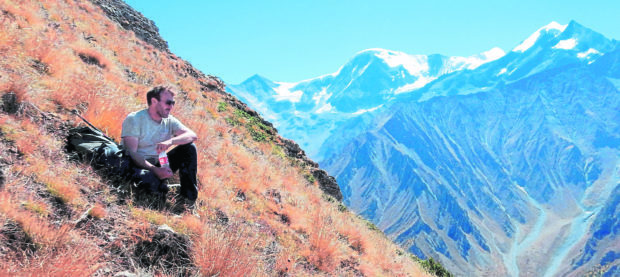A Highland businessman is exploring remote cultures of the Himalayas while helping to build an economic future for fragile Nepalese villages.
Gavin Anderson, from Ullapool, spent years in international development and was commissioned to assess tourism potential in the little known valleys cut off Nepal’s tourist hotspots such as Everest.
It was during this time that he got to know the villagers of the Dolpo Province in the Himalayas of eastern Nepal.
He discovered how the benefits of adventure tourism – one of Nepal’s biggest money spinners – had bypassed certain areas like Dolpo as visitors were more likely to head for the famous peaks.
The province has a population of over 36,000 and is about the size of Inverness-shire and Ross-shire combined but has been suffering from outward migration particularly among young people.
This has threatened not just the culture and way of life of the area but the economic prospects which could lead to more people choosing to remain in the province.
But in November Mr Anderson, an experienced adventure sportsman, will lead his first 16-day treking tour taking nine people into the region to show them the Dolpo Pa and their way of life.
Mr Anderson said: “When we undertook the tourism survey in the region, there was an enthusiasm from the local people to get involved. They were used to seeing visitors pass through.
“There was no community benefit because staff were being hired from the capital, Kathmandu, and porters and mule drivers were being hired from the lower regions on arrival and few people were buying from, or engaging with the locals.”
An important aspect of the tours is that they will not be stopping by just to take photos of local people but will be in the country to learn about their culture.
The tours will take in the rocky pastures of the endangered and elusive snow leopard, the mesmerising turquoise Lake Phoksundo, the national park and villages only accessible by small planes and trekking.
He said: “The Dolpo people, called the Dolpo Pa, are part of the collaboration. Their involvement will help build their skills to guide and interpret their culture, way of life and fascinating history.
“In turn, those on the trek will get proper insights into these mountain cultures that few people ever receive. It is about travelling deeply, not just skimming the surface.”
He added: “As well as enjoying the breath-taking scenery, the wilderness and the environment, they will also be helping support the preservation of a unique culture which is under risk from an ageing population, lack of opportunity and youth migration to the cities.”
